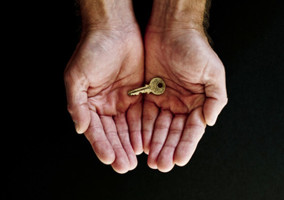You don’t have to look far to see that our society is in decline. We have a government that imposes cuts. We have a population that donates charitably but is not giving anywhere near enough for us to meet the demand for our services. Worst of all, we see a growing demand for our services because the outlook for the most vulnerable people in our society is getting worse and it is happening on our watch.
But we are a people to whom history hands moments like these as opportunities for significant turnarounds. Society owes much of what it takes for granted to the efforts of charities. Yet as individual people in individual organisations with individual priorities, we are stretched to the seams working to deliver positive outcomes with limited time and resources. Which means that as a collective force for good, we are not well enough organised to catalyse social change on the scale we know our world requires. We have a wealth of expertise but are we harnessing it to its full potential?
Having the boldness to try something new
My career has been in innovation, startups and charities. When assessing the likelihood of an initiative to succeed, you have to examine the initiative’s ability to iterate; i.e. to receive feedback, learn from it and have the creative freedom to try again with an adapted idea. Take James Dyson, it took 5,100 iterations of the vacuum cleaner before it became the market leader in multiple countries. Iteration is about having the boldness to try something new, which can seem daunting in the charity sector given we rely on the goodwill of others to finance our operations and work in situations with little margin for error. We have to strike a balance between iteration and business as usual. As with any collective undertaking, the key to achieving better outcomes often lies in smarter communication.
As a sector, the world is our laboratory. Everything we do with every beneficiary we encounter is an experiment. We sincerely hope that our efforts will work but whatever we do will likely generate a mix of results; some positive, some negative, others neutral. How effective is the communication our sector uses to learn from this? We have conferences, training sessions, reports, social and traditional media, but how much of the stuff we hear really sticks? No-one monitors whether it does.
We restrict the voices to whom we give a platform, to the tiny fraction of our collective workforce whom we consider to be the experts; the chief executives who speak on panels, the consultants who run training sessions, the heads of department whose opinions appear in articles.
In doing so we miss out on the expertise of over half a million people working in our sector who are experimenting everyday in their roles at the frontline of engagement with beneficiaries and stakeholders. How can we be surprised at the state of our society when our expertise as a sector is so fragmented?
We have siloed our expertise in so many ways; by sector, organisation, department, seniority level and most sobering of all, at an individual level too. How many people working on the frontline feel empowered to share their expertise with funders, policy makers, other organisations or even within their own organisation? And what faith would they have in that expertise being listened to and applied?
Wikipedia for social change
Consider Wikipedia: the world’s encyclopedia. Non-profit run, volunteer-powered and the fifth most visited website in the world. Wikipedia has democratised knowledge. Now anyone can find information on just about anything. Where is our Wikipedia for social change? Where is our aggregated expertise based on each of our interactions with beneficiaries and stakeholders. Where is our library of lessons learned, our repository of best practice, our online store of successes, our shared folder of failures?
We live in a digital age where in our personal lives we experience the benefits of small seemingly irrelevant bits of data being brought together on a gigantic scale to make life easier on a daily basis. Products that match our interests are recommended to us by Amazon, our optimum route to work is scheduled by Google Maps, songs we’ve never heard before but are likely to love are easily discoverable on Spotify, new shows similar to ones we’ve enjoyed previously are suggested to us on Netflix. Each of those recommendations are informed by data on what has and hasn’t worked before, sourced from millions of interactions by millions of people with a similar goal. Are we not under a moral obligation to apply that same dedication to harnessing our collective expertise in order to inform the approaches we take with society’s most vulnerable people?
Expertise is scattered
The problem is that our expertise about beneficiaries and stakeholders is scattered across so many different places; our heads, our conversations with line managers, on pieces of paper, in multiple versions of the same spreadsheet, on databases we use grudgingly. What if it was all in one place? What if everyone in our sector could contribute their expertise, discover other people’s, rate it, review it, apply it to their beneficiaries and stakeholders; and then share fresh expertise learned from the process? If we did that, imagine what kind of springboard for ideas, collaboration and most importantly, iteration, it would be. Imagine the effect it would have on public trust in charities and the support we receive through grants, donations and contracts.
We have a golden opportunity to accelerate the pace with which we bring about social change. Yes there are challenges such as confidentiality but none that cannot be overcome with smarter privacy controls and anonymisation.
The question we need to ask ourselves as a sector is this: will we be the generation that lived through an era with the greatest technological advancements the world has ever known and failed to use those advancements for the greater good? We must not let that be our legacy. None of us want it to be. Which means we need to change. We need to find digital ways to share our successes, our failures and our lessons learned. That is the only way our collective expertise can be fully harnessed for the benefit of ourselves, our sector and society. Every person I meet in this sector is so full of expertise which too often goes unshared. Together we have so much potential which is not yet fully realised.
The path we have chosen, social change, is not easy, but if we commit to learning, sharing and adapting, a better way is possible.
Matt Kepple is the founder of Makerble.com which accelerates social progress.
This essay is one of a series being produced by A Better Way in Insights for a Better Way: Improving Services and Building Communities which is published by Civil Exchange, in partnership with the Carnegie UK Trust. The book was published on 4 July and is available here.
Related articles












